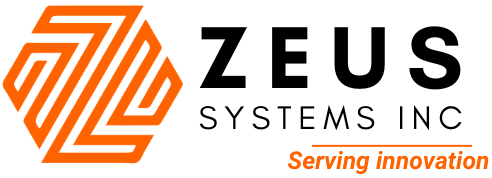In the realm of artificial intelligence, few developments have captured the imagination quite like OpenAI’s ChatGPT. Wit ...
Categories
Post By Date
- January 2026
- December 2025
- November 2025
- October 2025
- September 2025
- August 2025
- July 2025
- June 2025
- May 2025
- April 2025
- March 2025
- February 2025
- January 2025
- December 2024
- November 2024
- October 2024
- September 2024
- August 2024
- July 2024
- June 2024
- April 2024
- March 2024
- February 2024
- January 2024
- December 2023
- November 2023
- October 2023
- September 2023
- August 2023
- July 2023
- June 2023
- May 2023
-
Trends in Cloud Technology
In the realm of technological innovation, cloud technology continues to evolve, captivating hearts and minds alike. With ...
What is Chat-GPT and How powerful it is?
the conversational companion that brings a touch of humanity to our digital interactions. What is Chat GPT?A Conversa ...
3D Mapping using Drones
A journey to the 3D mapping using drones. The latest trend in 3D mapping using drones revolves around enhanced precis ...
-
Context-Aware Privacy-Preserving Protoco...
The Internet of Things (IoT) is evolving toward omnipresent, autonomous systems embedded in daily environments. However ...
Real-Time In Situ Biomarker Discovery wi...
In a world increasingly shaped by sudden health crises, climate-induced disease shifts, and highly mobile populations, ...
Robotic Telepresence with Tactile Augmen...
In a world where human presence is not always feasible - whether beneath ocean trenches, centuries-old archaeological r ...
Responsible Compute Markets
Dynamic Pricing and Policy Mechanisms for Sharing Scarce Compute Resources with Guaranteed Privacy and Safety In an ...

- Zeus
- January 1, 2024
- 2 years ago
- 10:32 pm
The world of artificial intelligence (AI) is experiencing rapid growth, bringing countless benefits but also raising concerns about its potential risks. As AI becomes more powerful and integrated into our lives, ensuring its safety and trustworthiness becomes paramount. In a significant move, Meta, the company behind Facebook, has stepped up to the plate by open-sourcing a set of tools designed to mitigate AI safety risks. This initiative underscores Meta’s commitment to responsible AI development and paves the way for a safer future for AI technology.
The released toolkit, dubbed Purple Llama, focuses on two key areas:
- Identifying and mitigating bias: Biases embedded in training data can lead AI systems to discriminate against certain groups. Purple Llama includes tools like Fairness Torch, which helps developers analyze and address bias in their AI models.
- Testing robustness against adversarial attacks: Malicious actors can manipulate AI systems with carefully crafted inputs, potentially causing them to malfunction or produce harmful outputs. Purple Llama offers tools like RobustBench, which allows developers to test their models against such attacks and identify vulnerabilities.
Meta’s decision to open-source these tools is particularly important. By making them freely available to the wider AI community, Meta fosters collaboration and knowledge sharing. This collaborative approach is crucial for tackling the complex challenges of AI safety, as no single entity can do it alone.
The initiative has been met with praise from AI experts and researchers. According to Jeremy Howard, co-founder of fast.ai, “Meta’s move to open-source these tools is a positive step that will accelerate progress in AI safety.” Similarly, Anima Anandkumar, director of the AI Research Lab at NVIDIA, commended Meta for “democratizing access to these important tools.”
However, some remain cautious, emphasizing the need for continued research and development in AI safety. Kate Crawford, author of “Atlas of AI,” pointed out that “these tools are just a piece of the puzzle” and that more work is needed to address issues like explainability and algorithmic decision-making.
Despite these challenges, Meta’s open-sourcing of AI safety tools marks a significant step in the right direction. It sets a strong example for other tech companies to follow and paves the way for a future where AI systems are not only powerful but also trustworthy and safe. As the world embraces AI technology, ensuring its safety and responsible development is a collective responsibility. Meta’s initiative highlights the importance of collaboration and open-source solutions in advancing the field of AI towards a brighter, safer future.
References:
- Meta AI Blog: [https://research.facebook.com/](https://research.facebook.com/)
- Fairness Torch: [https://github.com/wbawakate/fairtorch](https://github.com/wbawakate/fairtorch)
- RobustBench: [https://github.com/RobustBench/robustbench](https://github.com/RobustBench/robustbench)
- Jeremy Howard Twitter: [https://twitter.com/jeremyphoward?lang=en](https://twitter.com/jeremyphoward?lang=en)
- Anima Anandkumar Twitter: [https://twitter.com/animanay?lang=en](https://twitter.com/animanay?lang=en)
- Kate Crawford “Atlas of AI”: [https://www.amazon.com/Atlas-AI-Kate-Crawford/dp/0300209576](https://www.amazon.com/Atlas-AI-Kate-Crawford/dp/0300209576)

